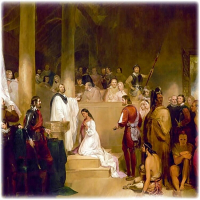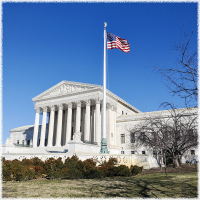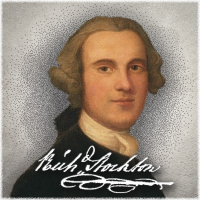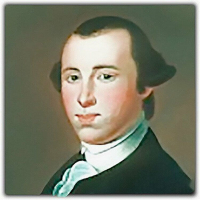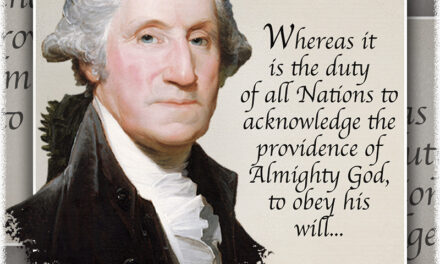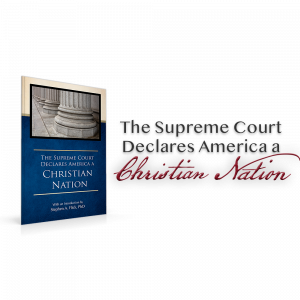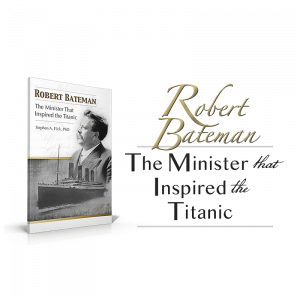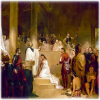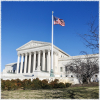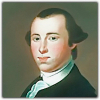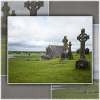Benjamin Franklin Calls for Prayer at Constitutional Convention
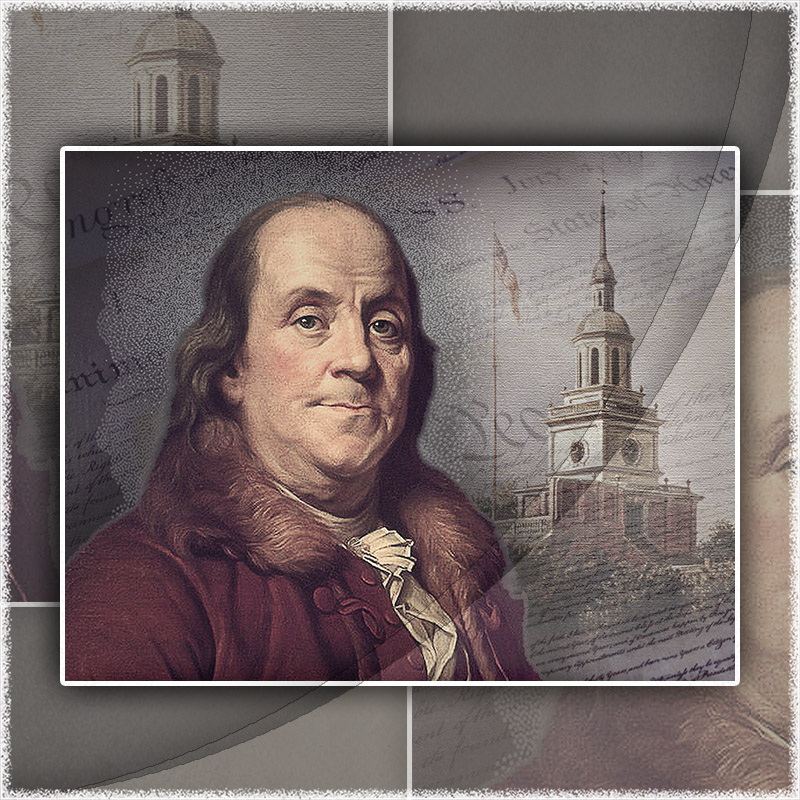
In the most important moments of American history, the Founding Fathers expressed their faith and reliance upon the providence of God in the affairs of the nation. But, tragically since the middle of the twentieth century, the true Christian origin of America has been denied and Her heroes and heroines have been vilified. The fact is, America's Founding Fathers were not deists, atheists, nor agnostics. Overwhelmingly, they were men and women of deep Christian faith, and the anniversary of the Constitutional Convention offers another reminder of this fact.Prayer at Constitutional Convention
Article ContentsPrayer at Constitutional Convention
Benjamin Franklin's call to prayer at the Constitutional Convention: Benjamin Franklin Calls for Prayer
Prior to the organization of the United States Congress under the Constitution, the Continental Congress, which served as America's earliest form of federal government, passed through three stages of development. Those three periods of development are often designated by one name—the Continental Congress—which spanned a period from 1774 to 1789. Historians often referred to one or more of the three specific periods of development within these fifteen years as the First Continental Congress (September 5 to October 26, 1774), Second Continental Congress (May 10, 1775, to February 28, 1781), and the Confederation Congress (March 1, 1781, to March 4, 1789).
Under the Second Continental Congress, the fledgling states entered into an agreement that served as America's first constitution. That agreement was known as the Articles of Confederation. Following the American Revolution, states quickly realized the Articles of Confederation were too inadequate to address the various issues that arose between the states. Only four years passed from the signing of the Paris Peace Treaty (1783) that formally ended the Revolution before America's leading political figures dedicated themselves to forming a " more perfect union." Though initially intending to revise the Articles of Confederation, some were intent upon composing a new document that would more thoroughly address their growing concerns. Finally, a convention was called for in May of 1787.
On May 25, 1787, representatives from seven states constituted a quorum[1] that allowed the Constitutional Convention to begin.[2] Convening at the Pennsylvania State House in Philadelphia, their first act was to elect a chairman and secretary for their proceedings:
It was moved by the honorable Robert Morris esquire, one of the deputies from Pennsylvania, that a President be elected by ballot, which was agreed to — and thereupon he nominated, on the part of the said State, his Excellency George Washington esquire.
The Members then proceeded to ballot on behalf of their respective States — and, the ballots being taken, it appeared that the said George Washington was unanimously elected — and he was conducted to the chair by the honorable Robert Morris, and John Rutledge esquires. The President then proposed to the House that they should proceed to the election of a Secretary — and, the ballots being taken, it appeared that
William Jackson esquire was elected.[3]
The ease with which George Washington was elected as chairman of the convention was not typical of the struggles that ensued. Nearly four months of arduous labor followed this tranquil beginning. At times, it appeared that the delegates would not be able to forge compromises on issues sufficient to craft the Constitution.
While many have charged America's Founding Fathers with deistic beliefs, it is nearly impossible to determine where secularists making the charge find their evidence. Contrary to their loud professions, they cannot find it in either Thomas Jefferson or Benjamin Franklin. Both men strongly believed in the " providence" of God—that God was in the world, guiding human events toward a divine outcome. And, one of the most vivid pieces of evidence that Franklin did not believe that God had removed Himself from the affairs of the world occurred at the Constitutional Convention.
A little more than a month after the Convention began, deliberations had become very difficult. Finally, on June 28, Benjamin Franklin rose to his feet on the Convention floor and addressed himself to Mr. Washington with these stirring words:
Mr. President
The small progress we have made after 4 or five weeks close attendance and continual reasonings with each other — our different sentiments on almost every question, several of the last producing as many noes as ays, is methinks a melancholy proof of the imperfection of the Human Understanding. We indeed seem to feel[4] our own want of political wisdom, since we have been running about in search of it. We have gone back to ancient history for models of Government and examined the different forms of those Republics which having been formed with the seeds of their own dissolution now no longer exist. And we have viewed Modern States all round Europe but find none of their Constitutions suitable to our circumstances.
In this situation of this Assembly, groping as it were in the dark to find political truth, and scarce able to distinguish it when presented to us, how has it happened, Sir, that we have not hitherto once thought of humbly applying to the Father of lights to illuminate our understandings? In the beginning of the Contest with G. Britain, when we were sensible of danger, we had daily prayer in this room for the divine protection. Our prayers, Sir, were heard, and they were graciously answered. All of us who were engaged in the struggle must have observed frequent instances of a Superintending providence in our favor. To that kind providence we owe this happy opportunity of consulting in peace on the means of establishing our future national felicity. And have we now forgotten that powerful friend? or do we imagine that we no longer need his assistance? I have lived, Sir, a long time, and the longer I live, the more convincing proofs I see of this truth — that God[5] governs in the affairs of men. And if a sparrow cannot fall to the ground without his notice, is it probable that an empire can rise without his aid? We have been assured, Sir, in the sacred writings, that “except the Lord build the House they labor in vain that build it." I firmly believe this; and I also believe that without his concurring aid we shall succeed in this political building no better than the Builders of Babel: We shall be divided by our little partial local interests; our projects will be confounded, and we ourselves shall become a reproach and bye word down to future ages. And what is worse, mankind may hereafter from this unfortunate instance, despair of establishing Governments by Human Wisdom and leave it to chance, war and conquest.
I therefore beg leave to move — that henceforth prayers imploring the assistance of Heaven, and its blessings on our deliberations, be held in this Assembly every morning before we proceed to business, and that one or more of the Clergy of this City be requested to officiate in that service.[6]
Dr. Franklin believed that the rancorous tone of the Convention could be changed if the representatives to the Convention could become united in their political endeavors if they were first united in their spiritual interests. The distinguished representative from Connecticut, Roger Sherman, was the first to affirm Mr. Franklin’s motion before it was met with reservation:
Mr. Sherman seconded the motion.
Mr. Hamilton and several others expressed their apprehensions that however proper such a resolution might have been at the beginning of the convention, it might at this late day, 1. bring on it some disagreeable animadversions. and 2. lead the public to believe that the embarrassments and dissentions within the convention, had suggested this measure. It was answered by Dr. F., Mr. Sherman, and others, that the past omission of a duty could not justify a further omission — that the rejection of such a proposition would expose the Convention to more unpleasant animadversions than the adoption of it, and that the alarm out of doors that might be excited for the state of things within, would at least be as likely to do good as ill.
Mr. Williamson, observed that the true cause of the omission could not be mistaken. The Convention had no funds.
Mr. Randolph proposed in order to give a favorable aspect to the measure, that a sermon be preached at the request of the convention on 4th of July, the anniversary of Independence, — and thenceforward prayers be used in the Convention every morning. Dr. Franklin 2ded. this motion After several unsuccessful attempts for silently postponing the matter by adjourning. The adjournment was at length carried, without any vote on the motion.[7]
Though the Convention believed it did not possess the resources to obtain a chaplain and the motion met with adjournment, the rancorous, divisive spirit that had prevailed to that point in the Convention was soon met with a spirit of cooperation which allowed the United States Constitution to be composed.
America deserves to know its true heritage.
Please contribute today!
[1] Though the delegates and the number attending the Constitutional Convention varied over the ensuing months, James Madison recorded those present at this first session: " From Massachusetts Rufus King. N. York Robert Yates, Alexr. Hamilton. N. Jersey, David Brearley, William Churchill Houston, William Patterson. Pennsylvania, Robert Morris, Thomas Fitzsimmons, James Wilson, Gouverneur Morris. Delaware, George Read, Richard Basset, Jacob Broom. Virginia, George Washington, Edmund Randolph, John Blair, James Madison, George Mason, George Wythe, James McClurg. N. Carolina, Alexander Martin, William Richardson Davie, Richard Dobbs Spaight, Hugh Williamson. S. Carolina, John Rutlidge, Charles Cotesworth Pinckney, Charles Pinckney, Pierce Butler. Georgia, William Few." James Madison, The Records of the Federal Convention of 1787, 3 vols. (New Haven: Yale University Press, 1911), 1:3.
[2] The Convention was scheduled to begin on May14, but difficulties in travel did not allow a quorum to convene until May 25 when seven states were represented. "Constitutional Convention (United States)," Wikipedia, May 25, 2017; https://en.wikipedia.org/wiki/Constitutional_Convention_(United_States).
[3] Madison, Records of the Federal Convention, 1:2.
[4] “feel" is underscored in Franklin MS.
[5] “God" twice underscored in Franklin MS.
[6] In the Franklin MS. the following note is added: — “The Convention, except three or four persons, thought Prayers unnecessary." A distorted account of this incident is given in Appendix A, CCCLV; see also CXCV, CCCLXVII, CCCLXXIX and CCCXCIII. Madison, Records of the Federal Convention, 1:450-52.
[7] Madison, Records of the Federal Convention, 1:452.

.getTime();)
.getTime();)
.getTime();)
